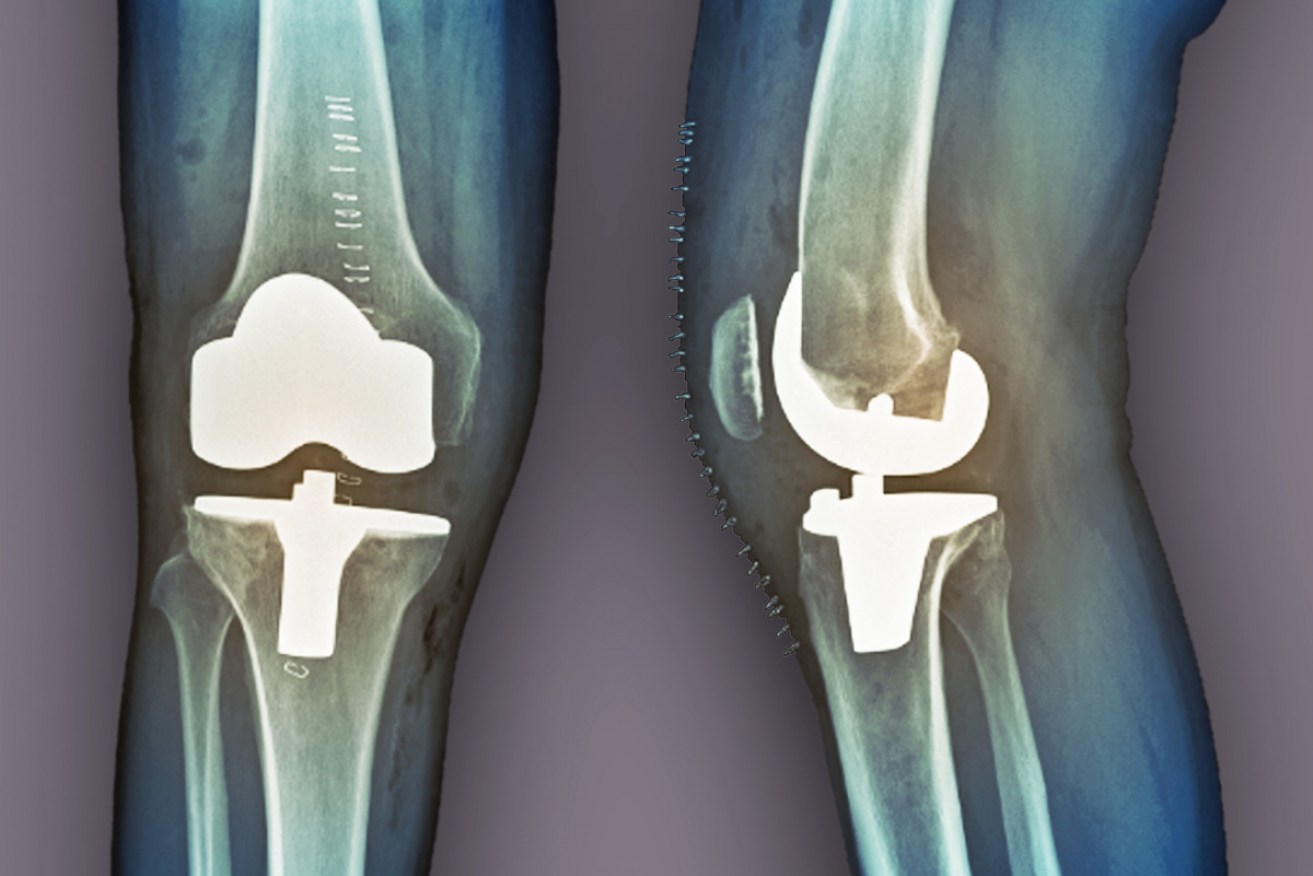Majority of hip and knee replacements last 15 years, global study finds


Most hip and knee replacements last 15 years, and some up to 25 years, a global analysis has found. Photo: Getty
Osteoarthritis patients who are considering hip or knee replacement surgery will now have a better idea of long-term success rates, thanks to a large study involving thousands of global cases, including Australia.
Published in The Lancet on Saturday, the study findings show that the majority of hip (89 per cent) and knee (93 per cent) replacements lasted 15 years.
About six in 10 hip replacements and eight in 10 knee replacements lasted 25 years – a figure that may increase in the future, according to the University of Bristol researchers.
“Given the improvement in technology and techniques in the last 25 years, we expect that hip or knee replacements put in today may last even longer,” lead author Dr Jonathan Evans said.

Knee and hip procedures are the most common type of joint replacement surgery in Australian osteoarthritis patients. Photo: University of Bristol
The Lancet research involved about half a million osteoarthritis patient case studies who had joint replacements from six countries – Australia, Denmark, Finland, New Zealand, Norway and Sweden.
The research data, published in two separate papers for hip and knee, were drawn from national database and joint replacement registries dating back more than 15 years.
Greater certainty for patients
Dr Evans said patients often asked surgeons how long a joint replacement will last, and there hasn’t been a clear answer – until now.
“Previous studies have been based on much smaller samples,” Dr Evans said.
Joint senior author Michael Whitehouse said the findings will help give patients a “reliable and evidence-based answer” to one of the most frequently asked questions when considering a joint replacement.
Hip and knee procedures are two of the most common and successful types of joint replacements worldwide.
Yet even in the best-case scenarios, infection, fracture, normal wear and tear or a reaction to wear particles may occur, the researchers said.
Often patients will require revision surgery, which can lead to increased fail rates, poorer function and greater cost than the initial surgery.
The researchers believe their findings will become increasingly relevant given the longer life expectancy of a growing population.
Joint replacements on the the rise in Australia
Hip and knee procedures are the most common type of joint replacement surgeries in Australia, and the numbers have been steadily increasing over the past 20 years.
Since 1999, more than 850,000 hip and knee replacements have been recorded by Australian Orthopaedic Association’s National Joint Replacement Registry.
In 2018, there were 63,577 reported knee procedures and 47,621 hip procedures, a figure that has more than doubled over 20 years.

Reported knee procedures in Australia. Photo: National Joint Replacement Registry

Reported hip procedures in Australia. Photo: National Joint Replacement Registry
The increasing rates have prompted health groups to question the over-reliance on the surgery, over other treatment options such as physical therapy or medications.
An education campaign on joint replacement and treatment alternatives is needed, Professor Peter Choong, Director of Orthopaedic Surgery at St Vincent’s Hospital recently told AFR.
“Joint replacement surgery provides relief for people with advanced joint disease. For those who don’t need it, surgery can cause more problems than it solves,” he said.
In 2011, joint replacement surgeries were the subject of a Senate Inquiry after 5500 Australian patients were implanted with two DePuy devices, which have since been recalled.








